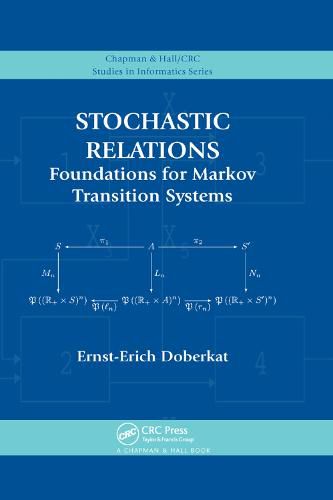Readings Newsletter
Become a Readings Member to make your shopping experience even easier.
Sign in or sign up for free!
You’re not far away from qualifying for FREE standard shipping within Australia
You’ve qualified for FREE standard shipping within Australia
The cart is loading…






Collecting information previously scattered throughout the vast literature, including the author’s own research, Stochastic Relations: Foundations for Markov Transition Systems develops the theory of stochastic relations as a basis for Markov transition systems.
After an introduction to the basic mathematical tools from topology, measure theory, and categories, the book examines the central topics of congruences and morphisms, applies these to the monoidal structure, and defines bisimilarity and behavioral equivalence within this framework. The author views developments from the general theory of coalgebras in the context of the subprobability functor. These tools show that bisimilarity and behavioral and logical equivalence are the same for general modal logics and for continuous time stochastic logic with and without a fixed point operator.
With numerous problems and several case studies, this book is an invaluable study of an important aspect of computer science theory.
$9.00 standard shipping within Australia
FREE standard shipping within Australia for orders over $100.00
Express & International shipping calculated at checkout
Collecting information previously scattered throughout the vast literature, including the author’s own research, Stochastic Relations: Foundations for Markov Transition Systems develops the theory of stochastic relations as a basis for Markov transition systems.
After an introduction to the basic mathematical tools from topology, measure theory, and categories, the book examines the central topics of congruences and morphisms, applies these to the monoidal structure, and defines bisimilarity and behavioral equivalence within this framework. The author views developments from the general theory of coalgebras in the context of the subprobability functor. These tools show that bisimilarity and behavioral and logical equivalence are the same for general modal logics and for continuous time stochastic logic with and without a fixed point operator.
With numerous problems and several case studies, this book is an invaluable study of an important aspect of computer science theory.